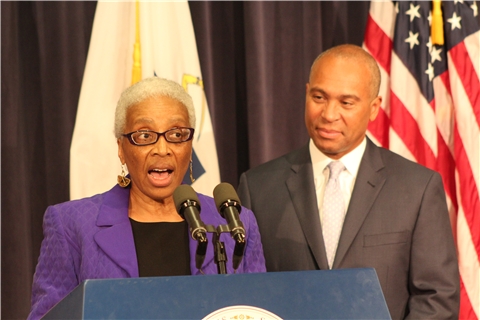The city of Springfield is looking into a state Supreme Court ruling that threw out residency restrictions for sex offenders in Lynn, Massachusetts.
Lynn’s ordinance prevented Level 2 and 3 sex offenders from living within 1000 feet of a school or park — essentially the entire city. Springfield’s creates a 500-foot zone around only schools.
Either way, the Supreme Judicial Court said the Massachusetts legislature considered the issue when crafting the state’s sex offender law, and did not intend for local communities (in this case, at least 40 of them) to make their own rules.
“This is a very disturbing and disheartening decision rendered by the courts,” Springfield Mayor Domenic Sarno said in a statement after the ruling. “The main thing here is the protection of our children from these predators.”
Sarno asked city solicitor Ed Pikula for guidance.
Pikula said in an email the legislature could decide to give cities the power to restrict where sex offenders live, but would have to consider whether the zones would be challenged in the future as unconstitutional.
And while the SJC based its ruling on the limits on “home rule” powers of municipalities, the court did not shy away the constitutional issues raised by opponents of residency requirements.
“Except for the incarceration of persons under the criminal law and the civil commitment of mentally ill or dangerous persons, the days are long since past when whole communities of persons, such Native Americans and Japanese-Americans may be lawfully banished from our midst,” Justice Geraldine Hines wrote for the court. “Also, because of the tension between a sex offender’s liberty interest…and the imperatives of public safety, the Legislature has demonstrated a concern for careful crafting of laws in a field fraught with constitutional peril.”
For Benjamin Keehn, a public defender representing the convicted sex offenders, the court’s language telegraphed how it would rule if the legislature were to act in response to the ruling.
“I think it’s fair to read that as a shot across the bow,” Keehn said. “That any statewide legislation that has the same effect as local residency restrictions would be struck down.”
Correction: An earlier version of this story included an incorrect spelling for attorney Benjamin Keehn’s last name.
